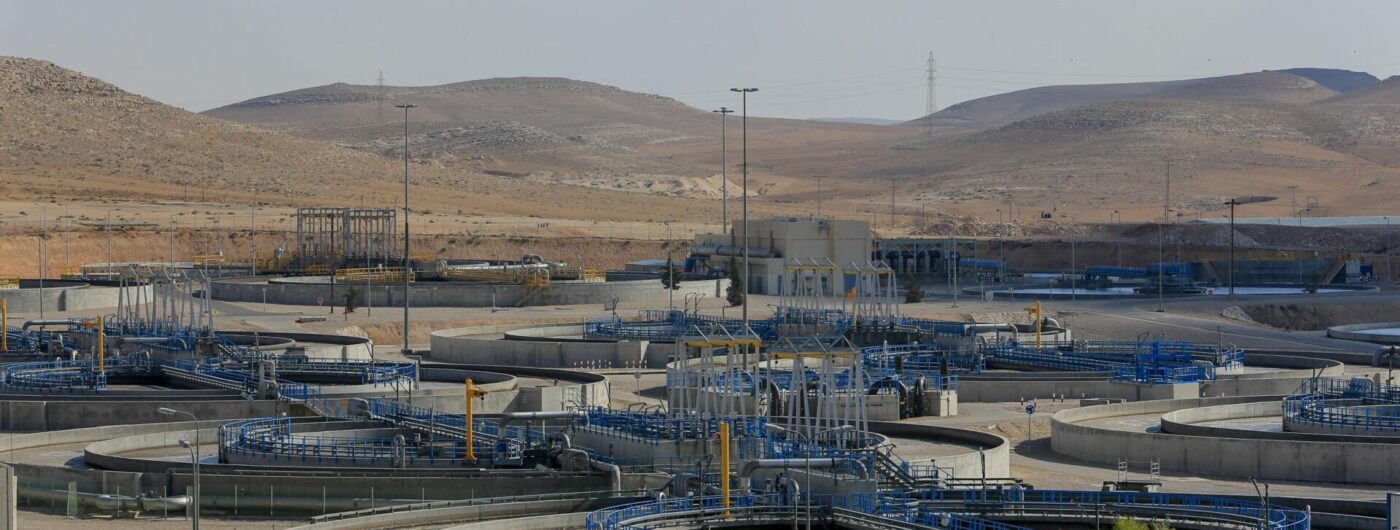
Mediterranean countries share water emergency and recovery plans to tackle the aftermath of COVID-19
- The Union for the Mediterranean (UfM) and the Mediterranean Water Institute (IME) met with experts from Algeria, Cyprus, Egypt, France, Jordan, Lebanon, Malta, Morocco, Palestine, Spain, Tunisia and Turkey to share their response to the water emergency and provide policy recommendations on how to move forward.
- Participants agreed that providing sustainable water access is essential for many jobs and discussed their emergency and recovery plans to help water utility operators cope with the crisis.
- Over 250 million people are expected to be “water poor” within the next 20 years in the Euro-Mediterranean region, with numbers potentially exacerbated by the COVID-19 pandemic.
6 May 2020. The COVID-19 pandemic is prompting questions for the water supply and sanitation sector globally and especially in some areas of the Euro-Mediterranean region, already under stress due to the water scarcity caused by the climate crisis. Together with the Mediterranean Water Institute (IME), the UfM held a series of virtual working sessions on the effects of COVID-19 on water and sanitation. Experts from Algeria, Cyprus, Egypt, France, Jordan, Lebanon, Malta, Morocco, Palestine, Spain, Tunisia and Turkey participated in the meeting and exchanged best practices, lessons learned, and the emergency plans that water and utility operators have prepared in their respected countries in order to cope with the crisis.
First, the emergency response phase. COVID-19 is putting further pressure on water supply. Since the lockdown, Jordan and Turkey have been affected by water shortages, whilst other countries have rerouted irrigation water to household water. Access to water is crucial in fighting of this pandemic, so all participants exchanged on their solutions to effectively tackle the water shortage.
Following the alarming discovery that traces of COVID-19 were found in wastewater treatment plants and concerns raised by participants, the UfM is working with the Joint Research Centre (JRC), the European Commission’s science and knowledge service, to ensure a scientific response. Together, the UfM and JRC will host a webinar showcasing guidelines and tools for keeping such infrastructure and its services safe and secure, especially for countries using treated effluent for their agricultural activities.
Second, the recovery phase. Water -including coastal water- is a key component of the productive systems, from agriculture, energy production and industrial production to transport and tourism. Today, 3 out of 4 jobs are water-dependent. To face this, the UfM is launching a study on the impact of COVID-19 on the water sector, and will support the implementation of the recovery strategy by providing a platform for policy dialogue and up-scaling of exemplary projects. The UfM, along with its partners, will support national policies and action plans, starting with two or three pilot countries from the Maghreb, Mashrek and Balkans regions.
The UfM Secretary General, Nasser Kamel, highlighted that “Water shall be at the centre of any recovery and development plan tackling the consequences of the COVID-19 pandemic in the region, as the crisis is yet another reminder that this vital sector must always be kept financially sustainable and technically capable. At the same time, the aftermath of COVID-19 will require the Euro-Mediterranean region to shift in its approach towards more sustainable production and consumption patterns.”
The recovery response will be included in the UfM’s regional Water Agenda, developed and implemented since 2017 to help achieve the 2030 Sustainable Development Goal of “Ensure access to water and sanitation for all” in the Euro-Mediterranean area, highlighted Almotaz Abadi, UfM Water Managing Director. The UfM Water Agenda aims to ensure that each and every Euro-Mediterranean country receives the necessary technical, administrative, and financial recommendations to help achieve water security for its population and their economic activities, taking into account its impact on agriculture, employment, hygiene and climate change.
More information:

